Towing capabilities can significantly impact logistics, transportation efficiency, and overall operational costs. When considering whether a pickup truck can tow a semi-trailer, various factors come into play. In this guide, we will explore the technical specifications, legal requirements, and practical considerations of towing semi-trailers with pickup trucks.
Understanding Towing Capacity
What is Towing Capacity?
Towing capacity refers to the maximum weight a vehicle can safely tow. It varies widely among different pickup truck models, influenced by factors such as engine size, rear axle ratio, and overall vehicle design.
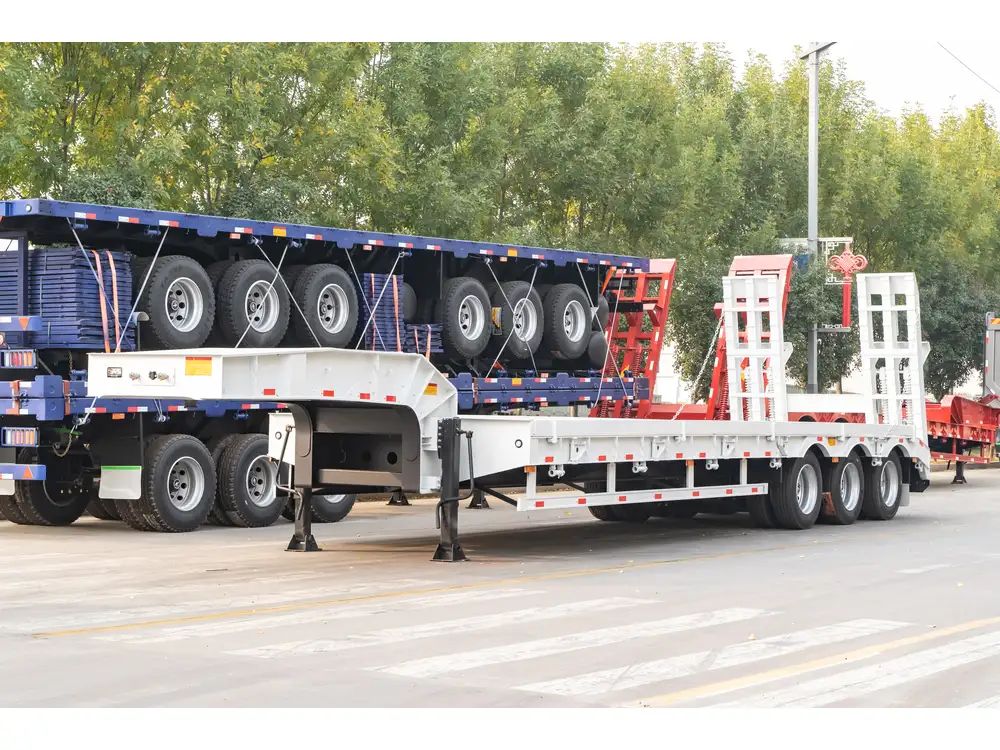
Key Factors Affecting Towing Capacity
| Factor | Description |
|---|---|
| Engine Power | The horsepower and torque that a truck’s engine can produce are critical; more power allows for greater towing capability. |
| Transmission Type | Automatic transmissions often enable better towing management, enhancing performance under load. |
| Weight Ratings | Manufacturers list individual weight ratings, including Gross Vehicle Weight Rating (GVWR) and Gross Combined Weight Rating (GCWR). |
| Suspension System | A stronger suspension system can handle heavier loads without compromising vehicle stability. |
| Hitch Design | The type and class of trailer hitch used can influence safety and effectiveness when towing. |
Legal Considerations for Towing
Regulatory Guidelines
Understanding local and federal regulations concerning towing is essential. Every jurisdiction has specific laws governing the towing of trailers, which often outline:
- Maximum allowable length and weight of towed vehicles
- Required brakes on certain weight categories
- Necessary permits for towing large trailers
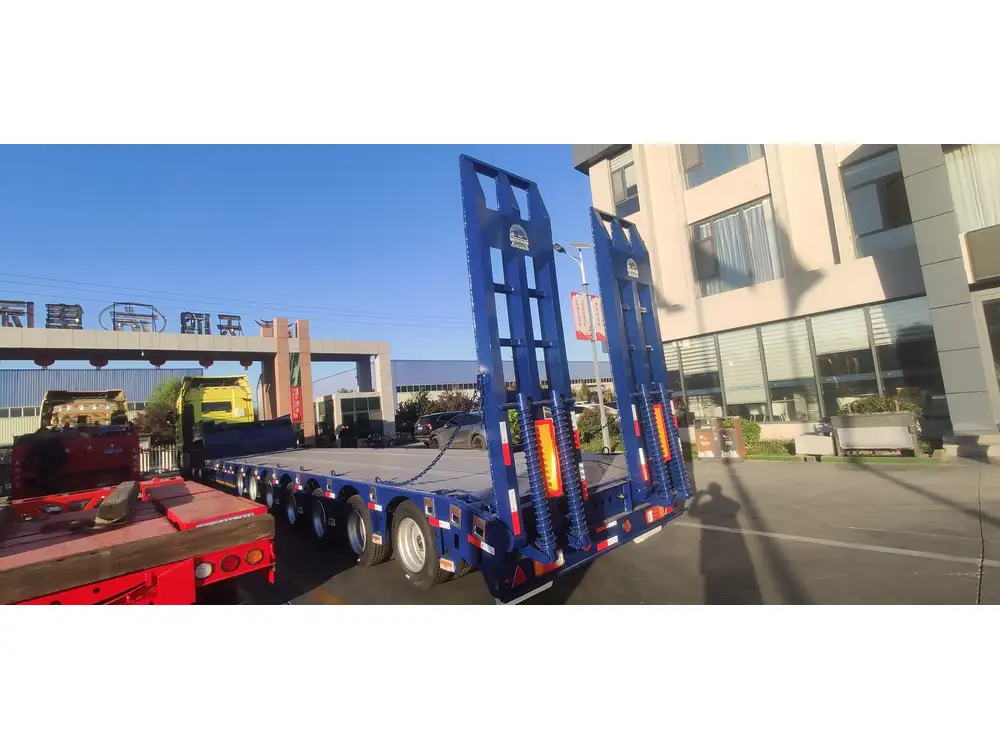
Trailering Regulations by State
| State | Maximum Towed Weight | Special Permits Required |
|---|---|---|
| California | 10,000 lbs | Yes |
| Texas | 26,000 lbs combined | No |
| Florida | 15,000 lbs | Yes for over 10,000 lbs |
Technical Specifications of Semi-Trailers
Semi-Trailer Weight
Most semi-trailers weigh between 10,000 and 15,000 pounds based on their design and load capacity. When fully loaded, they can weigh 80,000 pounds or more, depending on the contents. It’s essential to know the specific weight of the trailer you intend to tow.
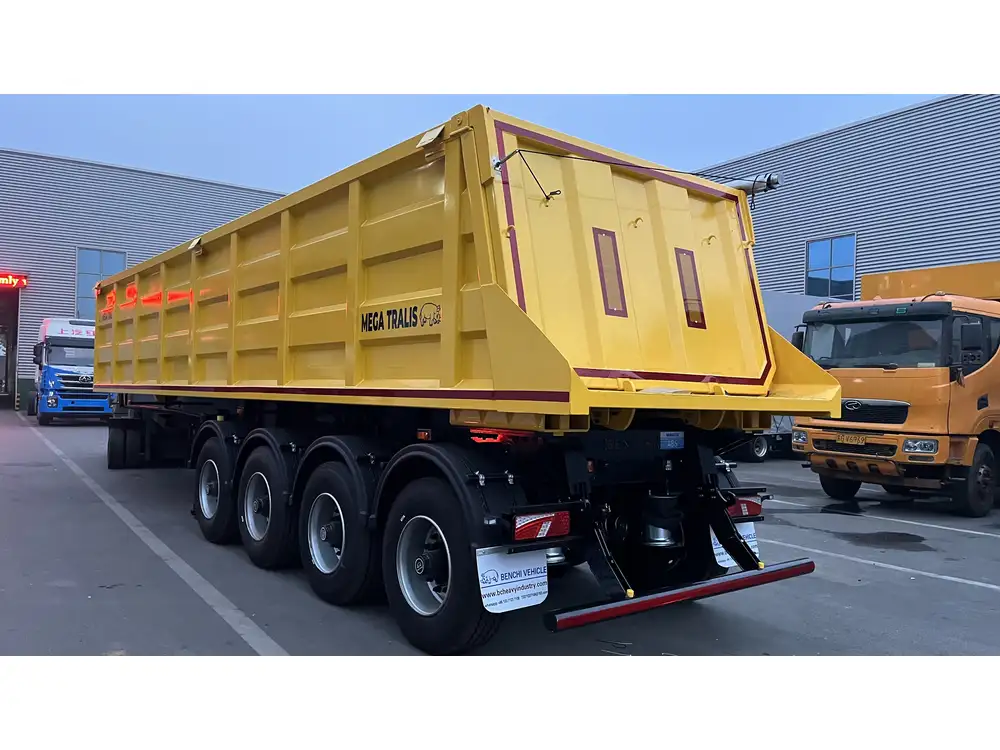
Typical Pickup Truck Towing Capacity
Modern full-sized pickup trucks can generally tow between 5,000 lbs to 15,000 lbs. However, heavy-duty models may offer towing capacities upwards of 30,000 lbs. Here’s a table comparing popular truck models:
| Model | Maximum Towing Capacity |
|---|---|
| Ford F-150 | Up to 14,000 lbs |
| Chevrolet Silverado 1500 | Up to 13,300 lbs |
| Ram 1500 | Up to 12,750 lbs |
| GMC Sierra HD | Up to 36,000 lbs |
| Ford Super Duty F-350 | Up to 37,000 lbs |
Important Note: Even if your truck might theoretically handle the weight, its configuration and state (maintenance, tire health) play a crucial role in its actual performance.
Can a Pickup Tow a Semi-Trailer?
Assessing Practicality
Towing a typical semi-trailer, especially at maximum capacity, exceeds the limits of a standard pickup truck. However, there are exceptions based on vehicle capabilities:
- Heavy-Duty Models: Trucks like the Ford F-350 or GMC Sierra HD may manage lighter semi-trailers, provided they’re not fully loaded.
- Specialized Equipment: In cases where a specialized hitch and braking system are employed, and weight regulations are adhered to, it becomes a feasible option.
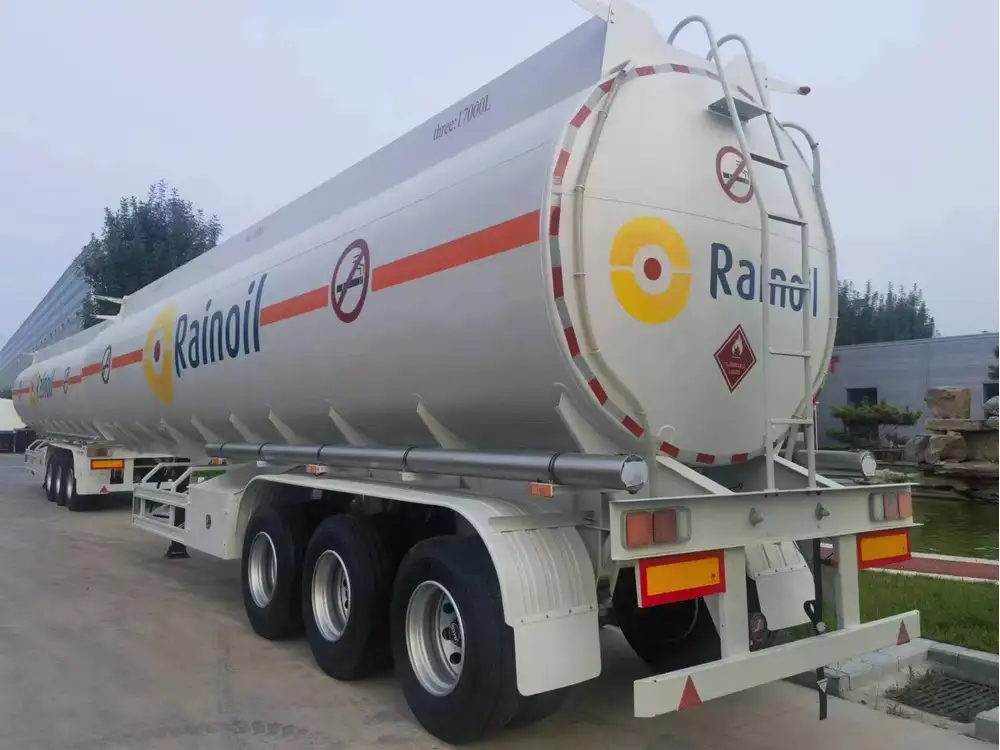
Risks and Considerations
Before attempting to tow a semi-trailer with a pickup, consider the following:
- Control and Stability: A overloaded pickup may experience severe control issues, risking accidents.
- Braking Capability: Semi-trailers typically require additional braking systems when towed. Ensure your pickup truck meets this requirement.
- Vehicle Durability: Regularly towing heavy loads can lead to premature wear and tear on the vehicle.
Best Practices for Towing Capacity Optimization
Choose the Right Pickup
If you’re considering towing larger loads consistently, selecting a high-capacity pickup truck is crucial. Focus on models equipped with:
- Robust towing technology
- Enhanced transmission and engine specifications
- Quality braking systems

Use a Weight Distribution Hitch
A weight distribution hitch evens out the weight applied to each axle. This not only improves handling but also stabilizes the towing platform, allowing for safer maneuvers at speed.
Regular Maintenance
Ensure your vehicle is regularly inspected and maintained to handle heavy loads. Key areas to check include:
- Brakes: Essential for safety.
- Tires: Ensure they are rated and inflated for the load.
- Fluids: Engine oil and transmission fluid must be at optimal levels.
When to Avoid Towing with a Pickup
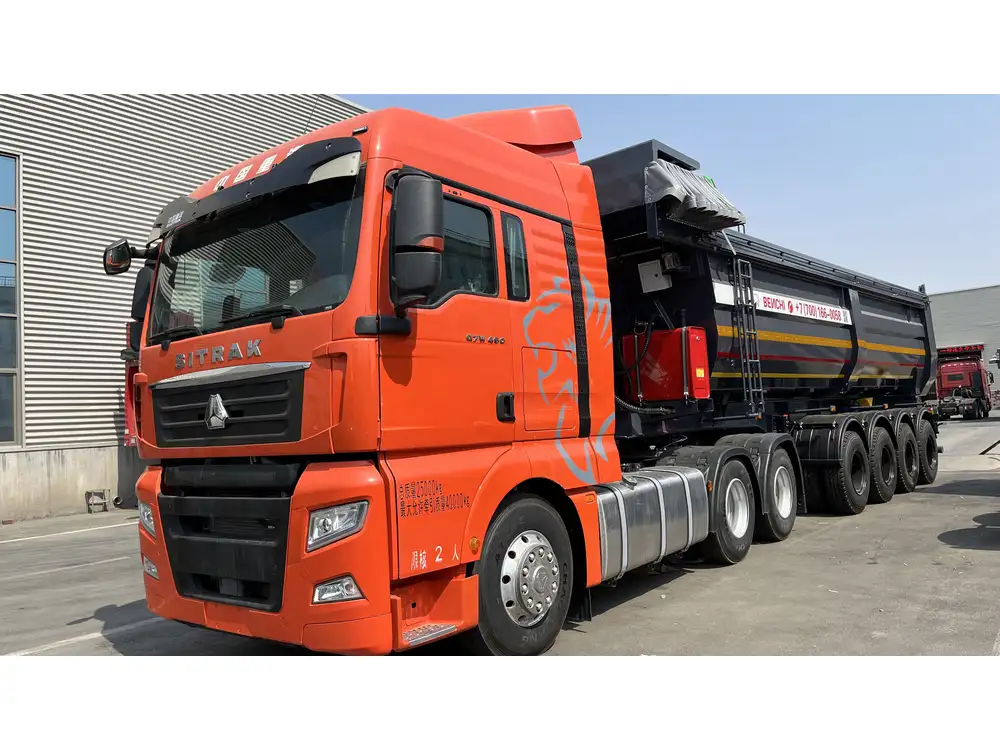
Weight Considerations
Avoid towing if your pickup truck’s Gross Combined Weight Rating (GCWR) might be exceeded. As a quick reference, GCWR = weight of the truck + trailer + any cargo.
Inexperienced Operators
If the driver lacks experience with towing large trailers, it’s best to avoid such undertakings entirely. Towing a semi-trailer requires skill and understanding of how to maneuver and stop safely.
Alternative Solutions for Towing Semi-Trailers

Professional Towing Services
Hiring professional towing companies ensures safety and compliance with regulations. Experienced drivers are familiar with handling heavy loads and are less likely to encounter issues during transport.
Upgrading to a Vehicle Specifically Designed for Towing
Consider investing in vehicles designed primarily for towing capabilities, such as:
- Tow Trucks: Equipped with stringent safety measures designed for carrying significant weights.
- Heavy-Duty Haulers: Vehicles built specifically for transporting large trailers efficiently.
| Vehicle Type | Best Used For |
|---|---|
| Tow Trucks | Moving heavy loads safely |
| Heavy-Duty Haulers | Long-distance transport of trailers |
| Flatbed Trucks | Versatile load design; ideal for multiple types of equipment |
Conclusion
In summary, while certain high-capacity pickup trucks can theoretically tow lighter semi-trailers, it is critical to evaluate every aspect of the operation—from legal regulations and weight limits to practical maneuverability and safety considerations. Prioritize vehicles with robust design and performance metrics, invest in the right equipment, and consider professional services when necessary. Understanding the complexities of towing will ensure both efficiency in operations and safety on the road. This should enable you to make well-informed decisions that align with your hauling needs and capabilities. For logistics companies, fleet managers, and trucking enthusiasts alike, knowledge is crucial for optimizing their towing options responsibly.



